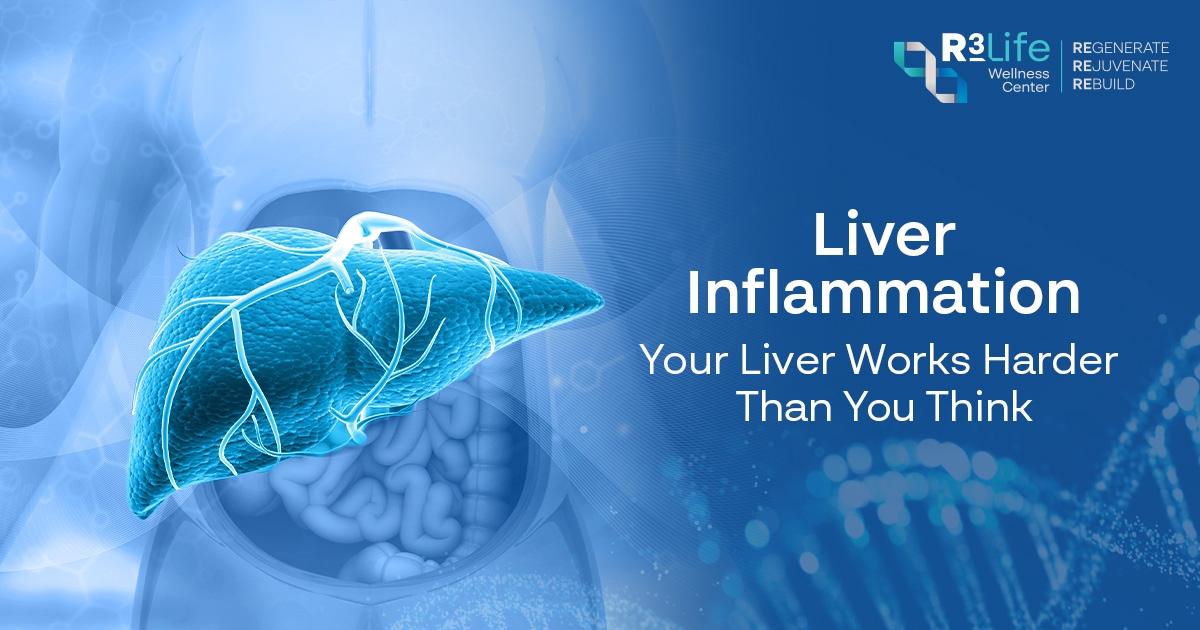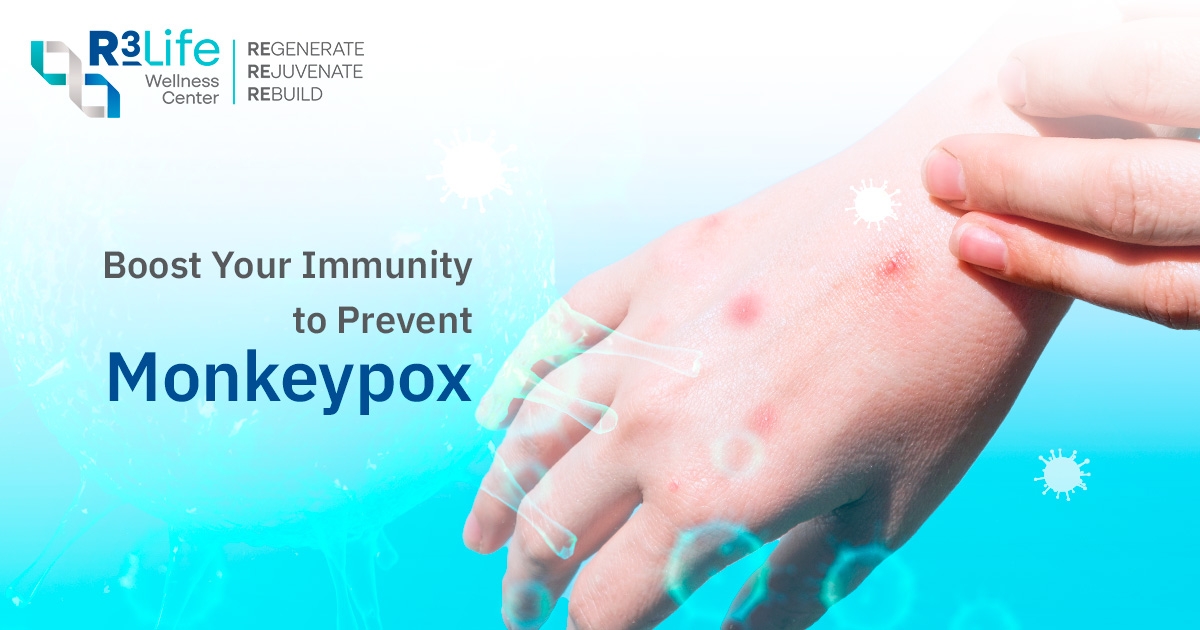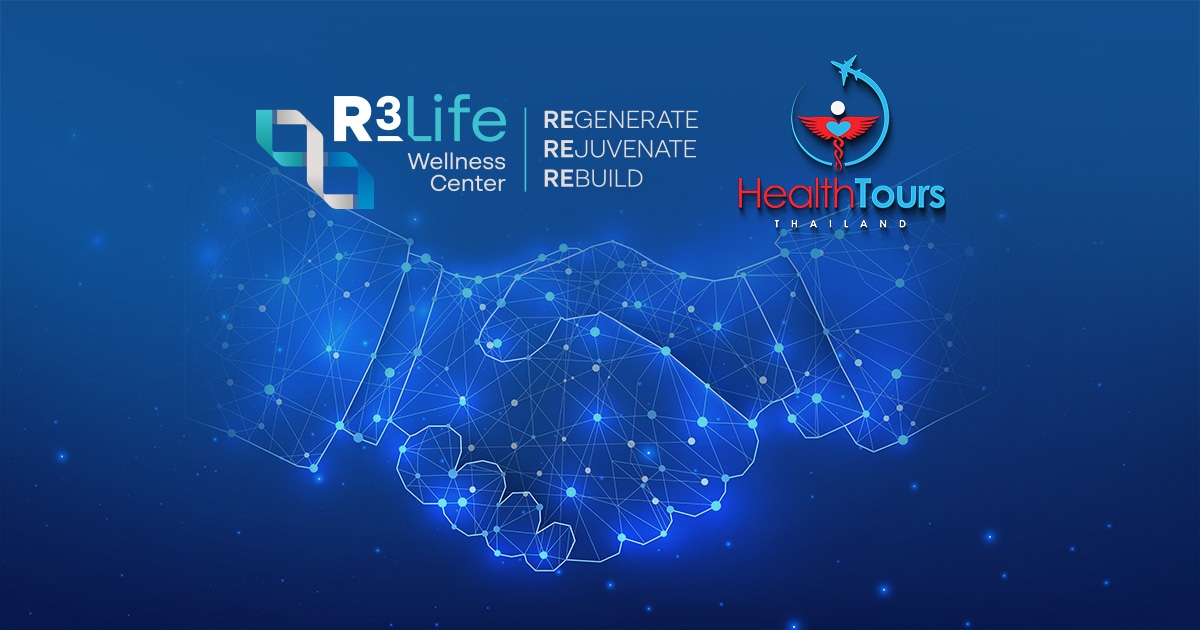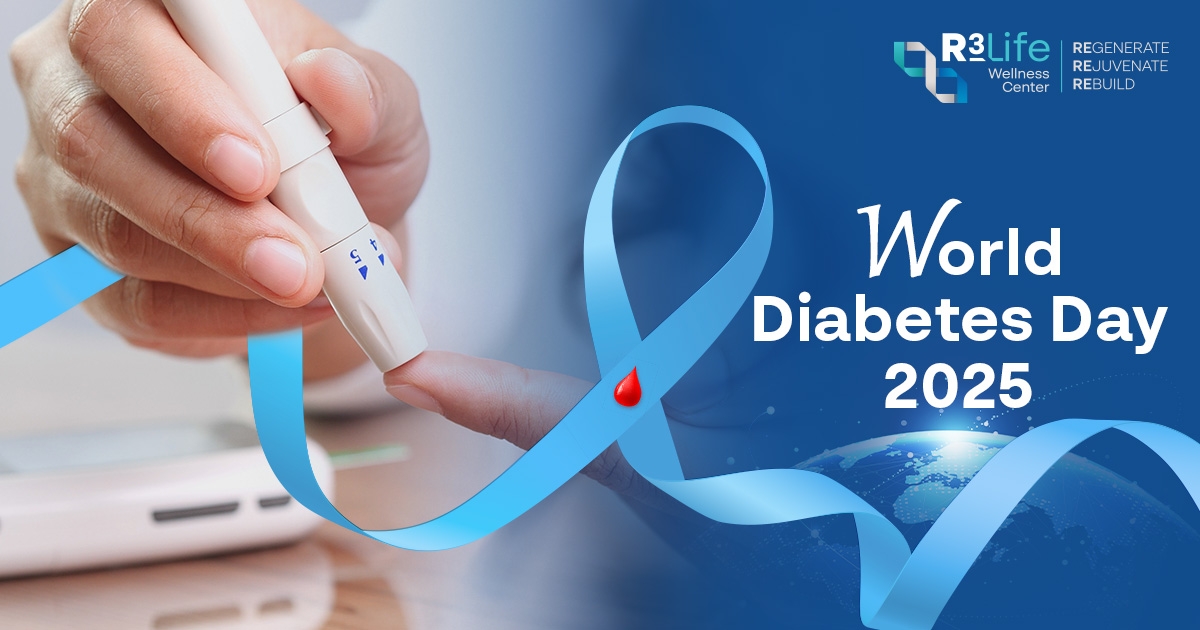Walking Pneumonia from Mycoplasma Infection: Symptoms, Causes, and Treatment
Walking pneumonia often gets dismissed as a mild respiratory issue, but when Mycoplasma pneumoniae is involved, the implications can go deeper — affecting immunity, triggering systemic reactions, and complicating recovery(e.g., myocarditis, encephalitis). In this article, we’ll dive into what Mycoplasma infections really are, how they spread, the signs to watch for, potential complications, methods of diagnosis, treatment options (including immune-boosting adjuncts), and ways to protect yourself or your loved ones. Read on below to learn more.
What Is Walking Pneumonia?
Walking pneumonia refers to a type of pneumonia that’s generally mild, caused by atypical pathogens, most commonly Mycoplasma pneumonia. Unlike classic pneumonia, people typically remain ambulatory and may not even feel sick enough to rest in bed. The “walking” label highlights that symptoms are subtle, tolerable, and often mistaken for a lingering cold or bronchitis.
What Is Mycoplasma?
Mycoplasma refers to a genus of bacteria that lack a cell wall, making them unique and intrinsically resistant to antibiotics targeting cell walls (e.g. penicillins). Among the many species, Mycoplasma pneumonia is the primary one associated with respiratory infections. While many Mycoplasma species reside harmlessly in or on the body as commensals, Mycoplasma pneumoniae has adapted mechanisms for adhesion, immune evasion, and triggering inflammation.
Major Types of Mycoplasma Infections
Mycoplasma infections are broadly classified into:
- Respiratory Mycoplasma Infections
These involve the upper and lower airways — causing pharyngitis, bronchitis, and pneumonia (including walking pneumonia).
- Genitourinary / Urogenital Mycoplasma Infections
Some Mycoplasma species (like M. genitalium, M. hominis, Ureaplasma urealyticum) primarily affect the urinary or reproductive systems, leading to symptoms like urethritis, pelvic inflammatory disease, or reproductive tract inflammation.
While both categories are bacterial and responsive to certain antibiotics, their route of transmission, symptoms, and consequences differ significantly.
How Does Mycoplasma Infection Occur? Transmission & Incubation
- Transmission: The bacteria spread via respiratory droplets when an infected person coughs or sneezes. Because Mycoplasma pneumoniae can survive in moist droplets, close-contact settings (e.g. schools, dormitories, military barracks, households) are high-risk environments.
- Carrier State: There are documented cases of asymptomatic carriers — individuals who host the bacteria without manifesting symptoms but still spread it.
- Incubation Period: Symptoms usually begin 1 to 4 weeks post-exposure.
Because of this long incubation and mild early symptoms, outbreaks can sometimes go
What Are the Symptoms?
Symptoms typically develop gradually, often beginning like a “cold” before progressing. Common and detailed signs include:
- Cough: Often dry initially; can later produce small amounts of sputum
- Fever: Usually low-grade (e.g. ~ 37.5–38.5 °C) but may go higher in severe cases
- Fatigue, malaise, general weakness
- Sore throat
- Headache
- Respiratory discomfort or mild chest pain
- Shortness of breath / wheezing (in more serious or predisposed patients)
- Extrapulmonary symptoms:
Because these symptoms overlap with many respiratory illnesses, definitive diagnosis often depends on further testing.
Complications of Mycoplasma Infection
Though many cases are mild, Mycoplasma infection can lead to complications, especially in children, the elderly, and those with comorbidities:
- Pulmonary complications: severe pneumonia, bronchiectasis, lung abscess, necrotizing pneumonitis, pleural effusion (~15–20%), ARDS (acute respiratory distress syndrome)
- Extrapulmonary complications: neurological involvement (encephalitis, meningitis, stroke, cranial nerve issues) in ~6% of hospitalized cases
- Cardiac complications: myocarditis, pericarditis, arrhythmias
- Hematologic: hemolytic anemia, thrombocytopenia
- Renal complications: glomerulonephritis (rare)
- Skin / mucous membrane involvement: severe rash syndromes, vasculitis
Because Mycoplasma pneumoniae can trigger both direct damage and immune-mediated effects, complications may occur even after respiratory symptoms start to abate.
Severe Cases and Risk of Death from Mycoplasma Infection
Death from Mycoplasma pneumoniae infection is uncommon, but severe cases do occur. In broader pneumonia outbreaks, mortality risk tends to be tied more to patient comorbidities and complications.
Military Outbreak Example (China, 2019):
In one military academy outbreak, 60 out of 595 cadets were affected (attack rate 10.08 %).
While this outbreak did not report high mortality, it illustrates how Mycoplasma pneumoniae spreads quickly in crowded settings.
Historical military pneumonia fatality reference:
In military trainees in certain pneumonia outbreaks, fatality rates as high as 4.5% have been recorded (though not specific to Mycoplasma).
Globally, a modeling study reported 65 deaths in an Mycoplasma pneumoniae surveillance dataset, reflecting an overall death rate ~0.11% in that sample.
Thus, while fatal cases are rare, in closed populations with vulnerable individuals, severe outcomes can occur.
How to Test for Mycoplasma Infection?
When suspicion arises, diagnostics may include:
- PCR / NAAT (molecular testing): High specificity and sensitivity, fast turnaround. Typically hours to a day, but depends on lab capacity.
- Serology (antibody tests): Detect IgM/IgG, but often require paired sera (acute + convalescent) to confirm rising titres. May require days to weeks for definitive rise in titres.
- Culture: Very slow, technically difficult — not used in routine practice for guiding treatment. Impractical for clinical decision-making due to slow growth.
- Multiplex panels: Can test for multiple respiratory pathogens including Mycoplasma in one go. But more expensive, and sometimes limited by availability or cost coverage.
Because of test limitations, clinicians sometimes treat empirically based on symptoms and risk factors while waiting for confirmatory results.
Treatment Approaches
Discovery how to treat mycoplasma pneumonia naturally, primary therapy involves:
- Antibiotics: Macrolides (e.g. azithromycin) or tetracyclines (e.g. doxycycline). Because Mycoplasma pneumoniae lacks a cell wall, β-lactam antibiotics are ineffective.
- Adjunctive immune support: For clinics focused on wellness, adding vitamin D3 IV vitamin therapies may help support immune function and recovery.
- Symptomatic care: Fluids, rest, analgesics or antipyretics, cough suppressants if needed.
- Monitoring and follow-up: To catch complications early.
Note: In some settings, Mycoplasma pneumoniae shows rising macrolide resistance (estimates vary by region: ~10% in the U.S., higher in parts of Asia)
When resistance or poor response is suspected, alternative antibiotics or combination therapy may be considered.
Prevention and Protective Strategies for Mycoplasma Infection
For those who haven’t been infected — or are caring for someone who has — strengthening the immune system plays a vital role in both prevention and recovery.
Basic precautions remain essential:
- Practice good respiratory hygiene — wear a mask when symptomatic, cover coughs and sneezes, and wash hands frequently.
- Avoid close contact in crowded or enclosed spaces during outbreaks.
- Improve indoor airflow and ventilation if someone at home is infected.
Beyond these everyday measures, it’s important to understand that our immune system plays a central role in how the body responds to Mycoplasma infection.
While Mycoplasma pneumoniae can spread easily through respiratory droplets, in most healthy individuals the body’s natural defenses are capable of clearing the bacteria before it causes serious illness. The severity of symptoms often depends on the strength of one’s immune response, those with weakened immunity may experience prolonged recovery or develop complications.
That’s why maintaining and strengthening your immune health is crucial, not only to prevent infection, but also to support faster healing if exposure occurs.
At R3 Life Wellness Center, we emphasize proactive immune support through IV nutrient programs scientifically designed to enhance resilience and restore balance within the body:
Super C IV Therapy: A high-dose intravenous vitamin C treatment that fortifies immune defense, reduces oxidative stress, and accelerates recovery from respiratory infections.
Ozone Therapy: Improves oxygen utilization, modulates immune activity, reduces inflammation, and promotes better respiratory and overall vitality.
NK Cells Therapy: Enhances natural killer (NK) cell activity to strengthen the immune system and support the body’s defense against infections and abnormal cells.
By reinforcing your body’s natural defense system, you can lower the risk of infection and strengthen your recovery capacity, protecting yourself and your loved ones from recurring or severe Mycoplasma pneumoniae episodes.
Why Choose R3 Life Wellness
- Medical Director is certified American Board-Certified (ABAARM) professionals, a UK-certified dermatologist, and internationally recognized lifestyle medicine experts, ensuring the highest standard of care.
- We utilize state-of-the-art medical equipment, including Terumo, for precise fluid administration. Our professional nurses ensure safety and accuracy throughout the process. Including our Client Service team provides a premium, 6-star hotel-like experience.
- Personalized treatment programs, plans tailored to each client's needs, ensuring the highest level of accuracy and effectiveness. We have over 40 IV Drip Formulas designed to support and protect your health.
- Your safety is our top priority. We’ve implemented advanced protocols, including a secure lock system during IV drip treatments, allowing immediate response in case of emergencies. This system can also be used when your clients need to pause treatment for prayer, restroom use, or meals — ensuring comfort, flexibility, and peace of mind throughout your visit.
Take the first step toward stronger immunity today, schedule your personalized consultation at R3 Life Wellness Center and discover the right IV therapy for you.
📲WhatsApp: (+66) 88 689 8888
📞Call: (+66) 88 689 8888
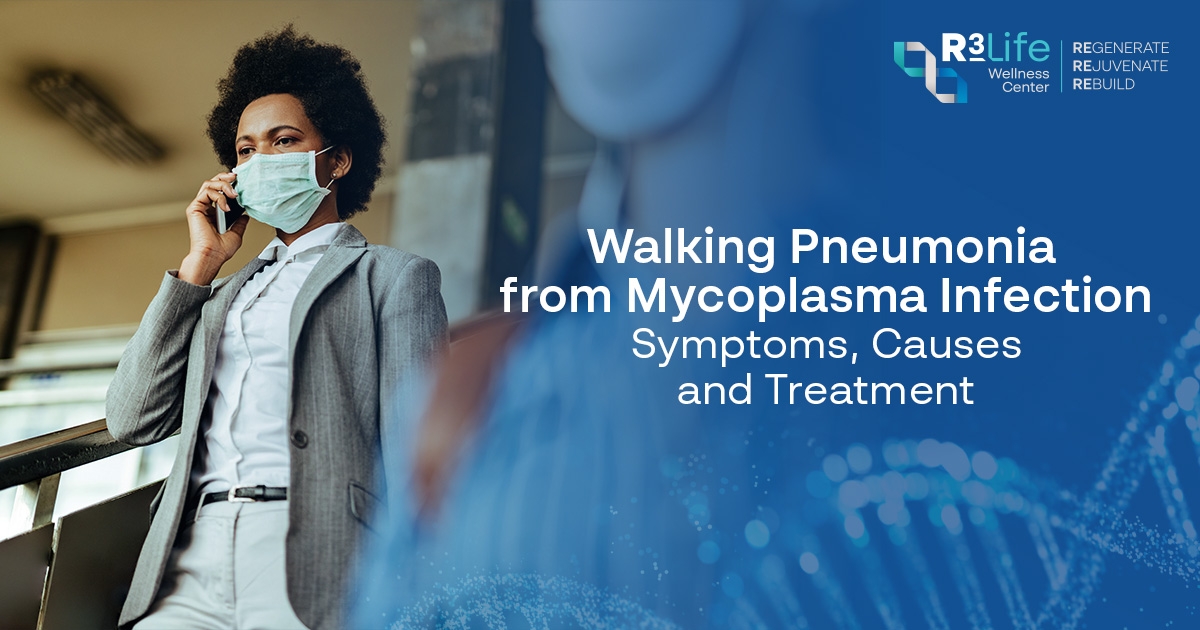
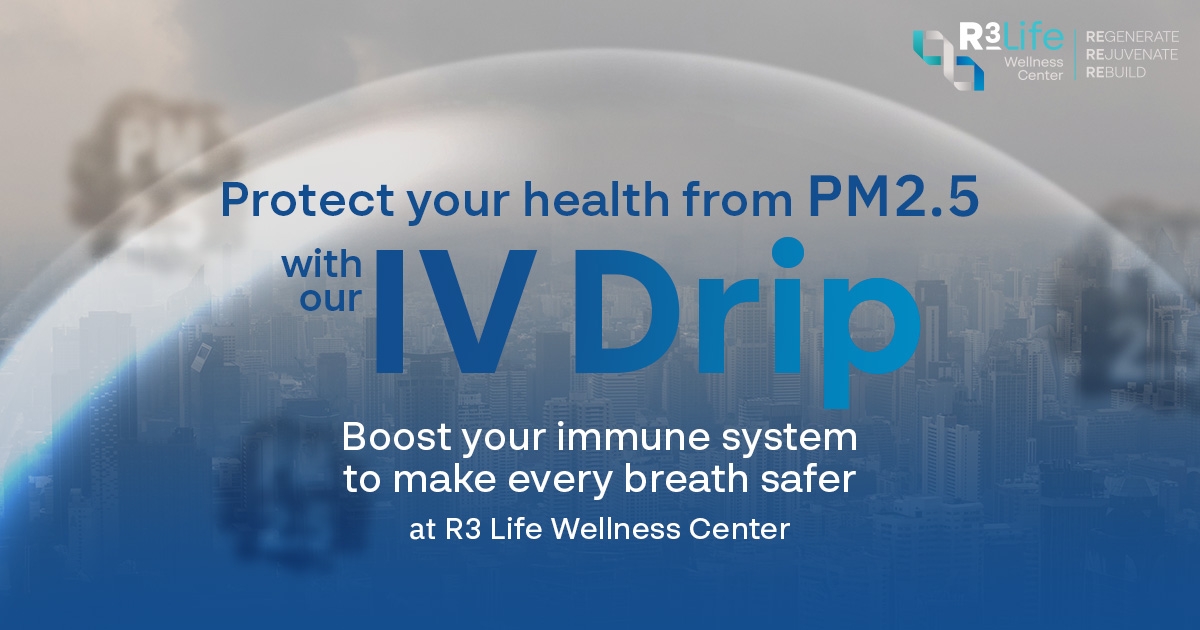
 Protect Your Health from PM2.5: Choose R3 Life Wellness for Effective IV Drip Solutions
Protect Your Health from PM2.5: Choose R3 Life Wellness for Effective IV Drip Solutions